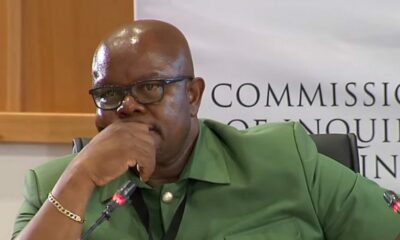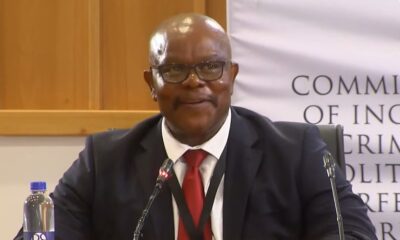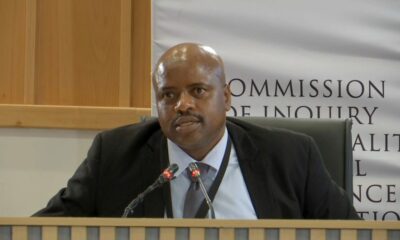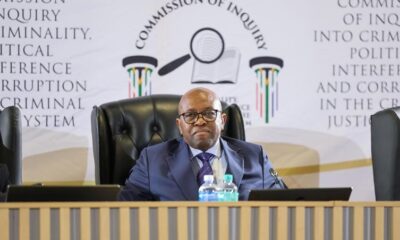News
“The Moment to Reset Policing Has Arrived,” Says Minister Cachalia at ISS Conference
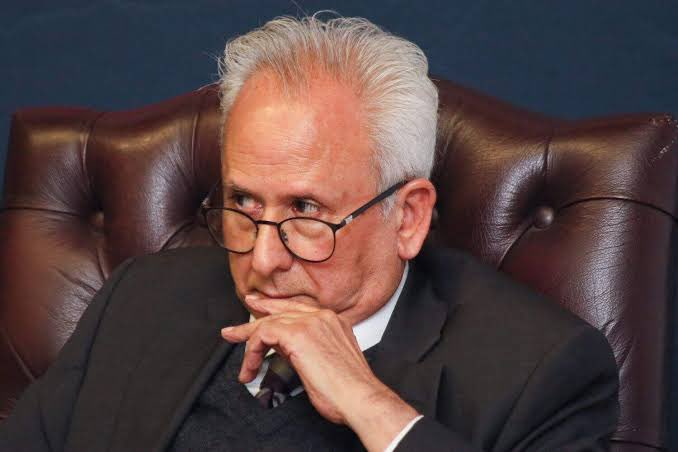
Policing in South Africa: A Reset is Overdue
Amid a backdrop of scrutiny and controversy, Police Minister Feroz Cachalia has issued a bold call to action: it’s time to reset policing in South Africa. Speaking at the Institute for Security Studies’ Evidence-Based Policing (EBP) conference at Cape Town’s Vineyard Hotel, Cachalia stressed that transformative change is urgent and necessary.
Shining a Spotlight on Policing Challenges
Recent allegations by KwaZulu-Natal police commissioner Nhlanhla Mkhwanazi have intensified public attention on the police. Mkhwanazi claimed that a former Police Minister interfered with the disbandment of a task team investigating political killings, allegedly to protect politically connected crime syndicates. He also linked the former minister to tenderpreneur Vusimuzi “Cat” Matlala, who previously held a R360 million police contract later cancelled.
Such claims, alongside ongoing concerns about corruption and inefficiency, have placed South African policing under an unflinching public lens.
Evidence-Based Policing: Data, Ethics, and Partnerships
Cachalia emphasized that the path forward lies in evidence-based policingusing data, research, and ethical practices to improve operations and public trust. “We need to take bold decisions. The moment to reset policing has arrived,” he said, praising the ISS for 34 years of work supporting safety, justice, and criminal investigation reforms.
The minister outlined the benefits of EBP, noting that pilots launched in 2023 have already demonstrated measurable improvements in policing outcomes.
“Evidence-based policing provides a solid foundation for a police service that is both effective and trusted by the majority of people,” Cachalia said.
He stressed that high ethical standards, transparency, and respect for human rights are not optionalthey are essential for community trust and legitimacy.
Policing Reform is Everyone’s Responsibility
Cachalia was clear that resetting policing isn’t the sole responsibility of the SAPS. Government, civil society, academia, and communities must collaborate to ensure reform is sustainable. Workshops and panels at the conference covered police oversight, integration of criminal justice responses to organised crime, and firearm violence reduction, among other pressing issues.
Madlanga Commission and Parliamentary Oversight
Adding further weight to the discussions, the Madlanga Judicial Commission, chaired by former Constitutional Court judge Mbuyiseli Madlanga, is actively investigating corruption, criminality, and political interference within the SAPS. A separate parliamentary ad hoc committee is also probing Mkhwanazi’s allegations.
The commission is expected to deliver a preliminary report in three months and a final report within six months, signaling a period of heightened scrutiny and potential reform for the national police service.
A Turning Point for Policing in South Africa
South Africans are watching closely. Social media reactions to Cachalia’s call for a policing reset reveal a mix of hope and skepticism, reflecting the broader public demand for accountability, professionalism, and a police service that genuinely protects communities.
With EBP guiding the way, and oversight mechanisms like the Madlanga Commission in play, the country faces a critical juncture: the opportunity to rebuild policing from the ground up, guided by data, ethics, and public trust.
{Source: IOL}
Follow Joburg ETC on Facebook, Twitter , TikTok and Instagram
For more News in Johannesburg, visit joburgetc.com



